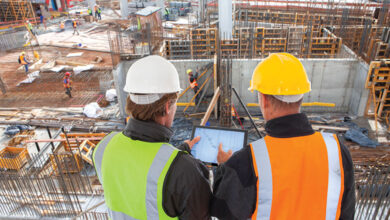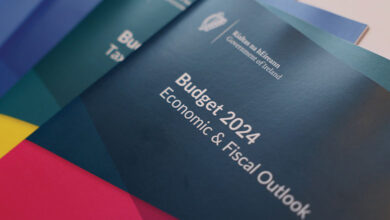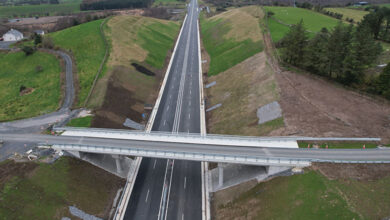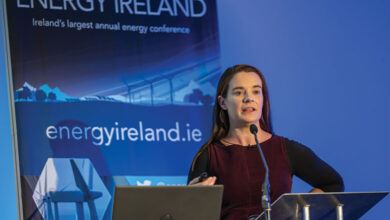KPMG: Emerging trends in infrastructure
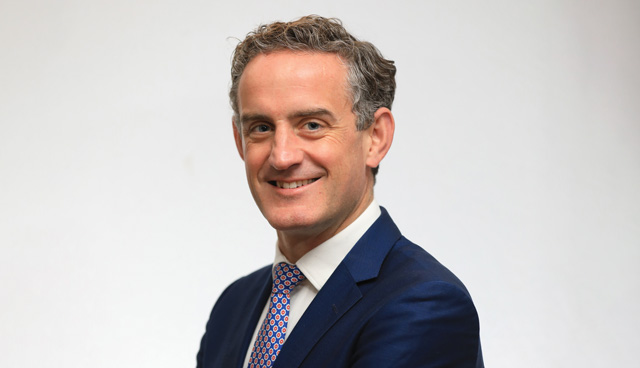
Robert Costello, Managing Director, Deal Advisory, KPMG Ireland, speaks to eolas about how infrastructure investment will enable the recovery from the Covid-19 downturn, Ireland’s green agenda and what role our cities will play in the post-Covid world.
“Since the onset of the pandemic, we have seen a significant reach from Government in our everyday lives,” Costello says. “Globally, governments have had to step up and intervene in everything from restricting our movements through lockdown to the protection of jobs and investment in certain areas. It shows the importance of government and its ability to invest and improve people’s lives. Done in the right way, government investment in infrastructure can help build the recovery.
“In the UK, they’re talking about building back better, in Ireland it’s the review to renew. Essentially, we should be looking at the role that infrastructure has to play in the recovery. Not just directly through increased employment as a result of government spending but also in areas of sustainable investment that will help our economy and society into the future. In the context of digital, we need to build the supporting infrastructure to make sure all of society has access to the digital platforms now needed to work remotely when required, access education and access healthcare. While we may return to a less ‘virtual world’ after the pandemic, the digital future has been accelerated and is here to stay. This will have benefits in terms of productivity, sustainability and flexibility but will also create new challenges.”
Remote working and learning has undoubtedly put pressure on Ireland’s digital infrastructure, but it has also changed the face of the country’s cities, especially Dublin. Here, Costello sees an opportunity to further regionalise the Irish economy as per the Government’s stated goals.
“Cities will always be an important part of the economy and society,” he says. “What is likely to change is an increased emphasis on the role of regional towns and cities where many of us have been camped out in our home offices for the past 12 months. Regular commuting to Dublin may be a thing of the past and the pandemic creates an opportunity for these towns and cities to become centres of economic and social activity again. This more balanced regional approach is something that already exists in government policy and it gives an opportunity for Galway, Limerick, Cork, Waterford and regional towns to play a bigger part in our future sustainable growth.”
“All of this is leading to what is coined the gigabit society, where the focus is on providing access to a range of digital services across the country. We expect to see a huge amount of investment in this area from commercial operators, particularly those building out fibre and 5G. This will be supplemented by government support through partnerships, funding and changes to regulation and legislation.”
In order for work, education and other aspects of life to further regionalise, guaranteed access to fibre broadband is a must. This has not been a fact of life for all areas in Ireland, something that the Government’s National Broadband Plan hopes to remedy through its connection of 540,000 premises to high-speed broadband. Costello is intimately familiar with the NBP given KPMG’s work on it and he sees it as “part of the jigsaw”.
“What they’re trying to do with the NBP is to bridge the digital divide, giving people across the country access to high-speed broadband,” he says. “What we are likely to see when the NBP does get rolled out, is the 540,000 premises having higher quality faster broadband than the rest of the population who currently have 30mb broadband. That will potentially flip the digital divide and put pressure on commercial providers in the market to invest in their infrastructure. If they can do that and make a profit, they will, but if they can’t there might be a need for further government intervention.
“All of this is leading to what is coined the ‘gigabit society’, where the focus is on providing access to a range of digital services across the country. We expect to see a huge amount of investment in this area from commercial operators, particularly those building out fibre and 5G. This will be supplemented by government support through partnerships, funding and changes to regulation and legislation.”
Digital has also been to the fore of discussions around Brexit and how borders in Ireland could be managed, with possible technological measures being discussed as a means to manage the situation on the island. Costello predicts that digital asset and inventory management will become key in this situation.
“The single biggest trend in the transport and logistics sector is the explosion of data. With digital platforms and Blockchain capturing customer data, and Internet of Things sensors constantly feeding data on product shipments, the volume of information is rising exponentially. The challenge is not just about capturing data; it’s about putting it to effective use, to understand evolving markets, gain new insights about customers and their preferences and provide instant updates on the progress of passenger and freight transport.
“The first couple of weeks of Brexit have seen the supply chain and logistics having difficulties in terms of access to goods. Development of digital platforms and a systematic integrated approach to use of the data in our supply chains can really improve the challenges we are facing with imports and exports at the moment.”
The 2020s will be a defining decade, with the reaction to Brexit and the pandemic coinciding with Ireland striving for net zero carbon by 2050. “In the Irish context, we have Project Ireland 2040 which sets out the exchequer capital investments that government will make over the next eight years or so,” Costello says. “We’ve also got the Climate Action Plan, currently being converted into the Climate Action Bill, which sets out the objectives and actions for Ireland to achieve net zero by 2050. There’s a huge element of the Climate Action Plan that relies on capital spending and investment in infrastructure in particular. In addition, there are government schemes funded through carbon levies to stimulate investment in renewables.
“An example of this is the Renewable Electricity Support Scheme [RESS], which is entering its second auction this year. This will facilitate the provision of renewable infrastructure, to drive the transition from carbon energy. With that comes the just transition and the closing down of coal and peat plants. The Bord na Móna peat plants are an example, where supports are currently being put in place to transform the business and where a number of the former staff will be offered retraining in sustainability projects.”
Concluding, Costello sees the RESS auctions as a good example of what is to come from the Government in terms of cooperation between the public and private sectors: “The Irish Government has a very strong record of public and private sectors working together. We’re seeing this in the renewables area with RESS, but there are lots of other opportunities for government and private sector to collaborate, especially on climate action. Electric vehicle charging and renewable energy support schemes are certainly areas that should be explored now.
“Key to a successful partnership is government knowing exactly what it is looking for in a private sector partner. This involves doing the right planning up front and being a sophisticated, educated buyer. A proper application of the Public Spending Code, the Government’s guide for capital spending approvals, can help with this. It sets out a decision gate framework whereby government can plan early and turn policy into programmes and projects, through setting out project specifications, project risks and mitigations, commercial strategy, governance plans, delivery models and procurement strategies. This will enable a partnership where the public and private sector can deliver what they need to deliver. We have seen a number of good examples of this during the pandemic and will hopefully see more in the infrastructure space in the coming years ahead.”
Robert Costello
Managing Director, Deal Advisory
KPMG in Ireland
E: robert.costello@kpmg.ie
W: www.kpmg.ie


